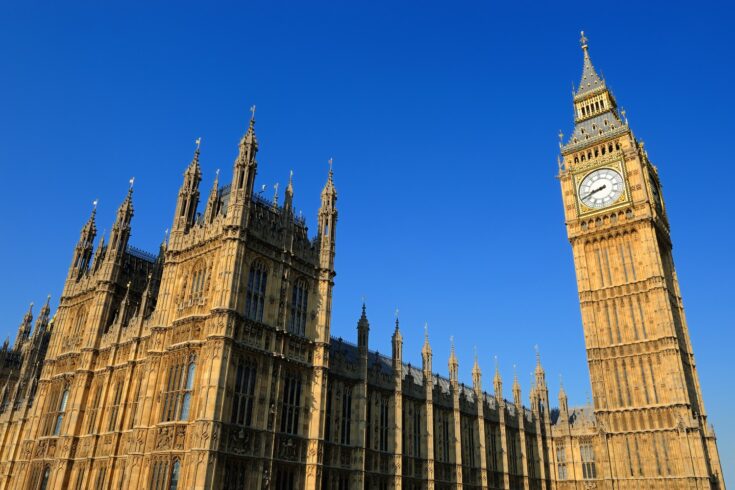The interests of government, society and the environment are inextricably linked. Each citizen depends on having a productive, healthy and resilient environment that contributes to the UK’s prosperity and wellbeing.
From tackling challenges like climate change to seizing the opportunities offered by clean growth, environmental science lies at the heart of many key government actions and initiatives. These include strategic plans such as the Industrial, Clean Growth and Clean Air Strategies and the 25-year Environment Plan.
About the projects
Natural Environment Research Council (NERC) science has underpinned government policies for over 50 years and enabled the UK to take the global lead on a whole range of critical issues. We work hand in hand with government, business and wider society to identify sustainable new ways of boosting prosperity and escaping poverty, and to produce practical solutions to real-world challenges with an environmental dimension.
Our funding for world-leading environmental science and scientists, combined with our support for long-term, large-scale research, provides the government with robust, independent evidence and advice from experts that not only underpins policies and services, but also enables the UK to meet its international commitments. We also provide the government with rapid access to research infrastructure and expert advice during emergencies.
Below, we present a selection of impacts and benefits that our investment in cutting-edge environmental science has delivered across the remit of the government.
Impacts of the projects
Reducing risks, saving lives
As members of the UK’s Natural Hazards Partnership (NHP), four NERC-funded research centres help government at all levels to better prepare for, and respond to, natural hazards such as storms and flooding. In 2017, its rapid and comprehensive advice equipped the Scottish Government to make a proportionate response to Storm Ophelia.
Beneficiaries: Cabinet Office, Scottish Government, local authorities and emergency services.
Enabling agenda-setting TV
NERC research helps shape high-profile BBC documentaries such as Blue Planet II – extraordinary TV watched by millions around the world. They transform perceptions of issues such as plastic pollution, changing people’s behaviour and driving public policy. The programmes also promote a positive image of the UK as a global leader in science and culture.
Beneficiaries: Department for Digital, Culture, Media and Sport (DCMS) and the Foreign, Commonwealth and Development Office (FCDO).
Preparing better for bad weather
NERC-backed breakthroughs in computer modelling and atmospheric measurements have enhanced the accuracy and predictive capability of Met Office forecasts. Benefits include an annual £76-£127 million reduction in flood damage, fewer cold-related deaths and reduced road-salt stockpiling.
Beneficiaries: Department for Environment, Food and Rural Affairs (Defra), Department for Transport (DfT), Department of Health and Social Care (DHSC) and local authorities.
Prompting urgent environmental action
Long-term NERC-funded studies provided the evidence that enabled government action to reduce plastic pollution by banning plastic microbeads, reduce the risk to pollinating insects by banning neonicotinoid pesticides, and protecting the ozone layer by phasing out ozone-depleting substances.
Beneficiaries: Defra and the UK Parliament.
Keeping transport moving
Rapid deployment of the Facility for Airborne Atmospheric Measurements (FAAM) research aircraft, plus NERC-funded science and expertise, played a pivotal role in defusing the crisis caused by volcanic eruptions in Iceland in 2010-11. Using precise measurements plus advice from experts, the Civil Aviation Authority was able to introduce new regulations to reopen airspace – saving airlines up to £290 million per day.
Beneficiaries: DfT and the Cabinet Office.
Underpinning international commitments
Through its bases, ships and aircraft, NERC’s British Antarctic Survey (BAS) provides a visible illustration of the UK government’s commitment to the polar regions. BAS also enables the FCDO to focus on Arctic affairs and maintain a leadership position within the Antarctic Treaty System.
Beneficiary: FCDO.
Strengthening defence
As a strategic partner of the Ministry of Defence (MoD), the NERC-funded National Oceanography Centre boosts UK defence and security by providing specialist capability in autonomous underwater vehicles, remote sensing, anti-mine measures and understanding of the marine and coastal environment.
Beneficiary: MoD.
Informing policy
NERC research has long underpinned the government’s approach to environmental issues, including the UK’s 25 year Environment Plan, the UK Climate Change Act 2008, UK Climate Projections for the 21st century, and the Intergovernmental Panel on Climate Change reports that form the cornerstone of global climate negotiations.
Beneficiaries: Defra and the Department for Science, Innovation and Technology.
Investing for the future
We will continue to help government and other public sector organisations access the best science, skills and data. We are leading four UK partnerships with government and other partners, tackling major challenges by delivering high-quality interdisciplinary research through the UKRI Strategic Priorities Fund. With a total value of £59 million, these are addressing clean air, climate resilience, landscape decisions and digital environment solutions.
NERC is also an active member of, and provides the secretariat for, the Research & Innovation for our Dynamic Environment (RIDE Forum). The RIDE Forum comprises 23 public sector organisations who hold a stake in environmental change research, innovation, training and capabilities. The forum aims to help provide decision-makers with the co-ordinated knowledge they need to respond to the challenges and opportunities presented by environmental change.
Top image: Houses of Parliament, Westminster. Credit: Getty Images.

